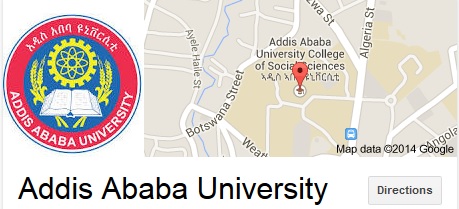Establishment of the Addis Ababa University International Humanitarian Law Clinic

“Is all fair in war?”
We see wars from Yemen to Congo, from Afghanistan to the former Yugoslavia; we read about the atrocities committed in World War II, and we think to ourselves “maybe all is fair in war, maybe everything is fair game”. However, some rules govern the conduct of wars and armed conflicts.
Just as Human Rights Law protects civilians during times of peace, International Humanitarian Law is a branch of law that protects, among others, civilians, combatants, medical personnel, and the environment during times of war.
International Humanitarian Law (IHL) also known as the Law of Armed Conflict, a branch of public international law, provides crucial safeguards for victims of armed conflicts. IHL regulations are in effect to ensure military and civilian hospitals, transport, and staff are not the target of direct attacks. There are also rules against attacks and destruction of infrastructure necessary for the sustenance of human lives and health, such as water pipes and food sources. IHL protects civilians against a direct attack by the parties to the conflict. IHL also obliges the parties to the conflict to grant access to impartial humanitarian organizations such as the Red Cross and Red Crescent societies, to provide humanitarian services for civilians, without distinction, which is particularly relevant where national governments are unable to respond to the pandemic. Through the help of International Criminal Law, IHL punished the perpetrators of war crimes for their acts.
However, seeking to raise awareness of these rules when there is active hostility and expect the parties to the conflict to obey and abide by the IHL laws. It is very difficult to teach IHL rules during the war.
To alleviate the consequences of war at times like this, the International Committee of the Red Cross (ICRC), as guardian of IHL, disseminates information about IHL to authorities, armed forces, non-state armed groups, and the general public around the world. One of the approaches used is the teaching of IHL in universities. In Ethiopia, the ICRC has worked to ensure that IHL is a compulsory fourth-year course at all law schools. The ICRC also organizes the annual National IHL Moot Court Competition by collaborating with these universities.
In the dissemination of IHL, however, classroom lectures are not enough. In addition to lectures given to students, a forum accessible beyond self-study is imperative. It will also create a platform for debate and discussion as well as awareness-raising to the university community and beyond. After discussions held by the ICRC and the Addis Ababa University Law School about how to provide better, more practical IHL education, the outcome of the conversation was the establishment of the first IHL Clinic in Ethiopia.
We established the Addis Ababa University IHL Clinic with the primary objective of providing students with the opportunity to take the theoretical lessons they learn in their classrooms and to improve them with practical experience that can be used in real-life situations. They will take what they have learned and put it into practice through the dissemination, training, implementation, and enforcement of IHL.
To further its goal, the Addis Ababa University IHL Clinic is planning to publish an annual student journal for student researches. We post essays and articles by students, academicians and practitioners on our website regularly. The Addis Ababa University IHL Clinic will work to ensure that all stakeholders learn and understand the IHL rules. We hope that the work of the Clinic will help to ensure respect for the laws of armed conflict. Knowledge of the rules and the consequences of the infringement will go a long way towards the overall implementation of IHL.
The Addis Ababa University IHL Clinic is open to everyone. There is not a field of education that is not related to armed conflicts. For example, the issue of restriction of chemical weapons is important to students of Chemical Engineering and Chemistry. Students of psychology study the mental effects of War. The course Cultural Anthropology is important to provide insight into the customary rules of various cultures on the issue of warfare.
We invite students and academia of any field to participate in the Addis Ababa University IHL Clinic. Our office is located on the Main Campus (6Kilo Campus) of Addis Ababa University, on the ground floor of the Law School Building Room 014. You can contact us by email at ihlclinicaau@gmail.com.
Please check out our website https://aauihlclinic.wordpress.com/, follow us on Facebook https://www.facebook.com/AAU-IHL-Clinic-105608251123101/ and Twitter https://twitter.com/aauihl

















 The main Admission Office It is located on the Main Campus (at Sidist Kilo) of Addis Ababa University.
The main Admission Office It is located on the Main Campus (at Sidist Kilo) of Addis Ababa University.









